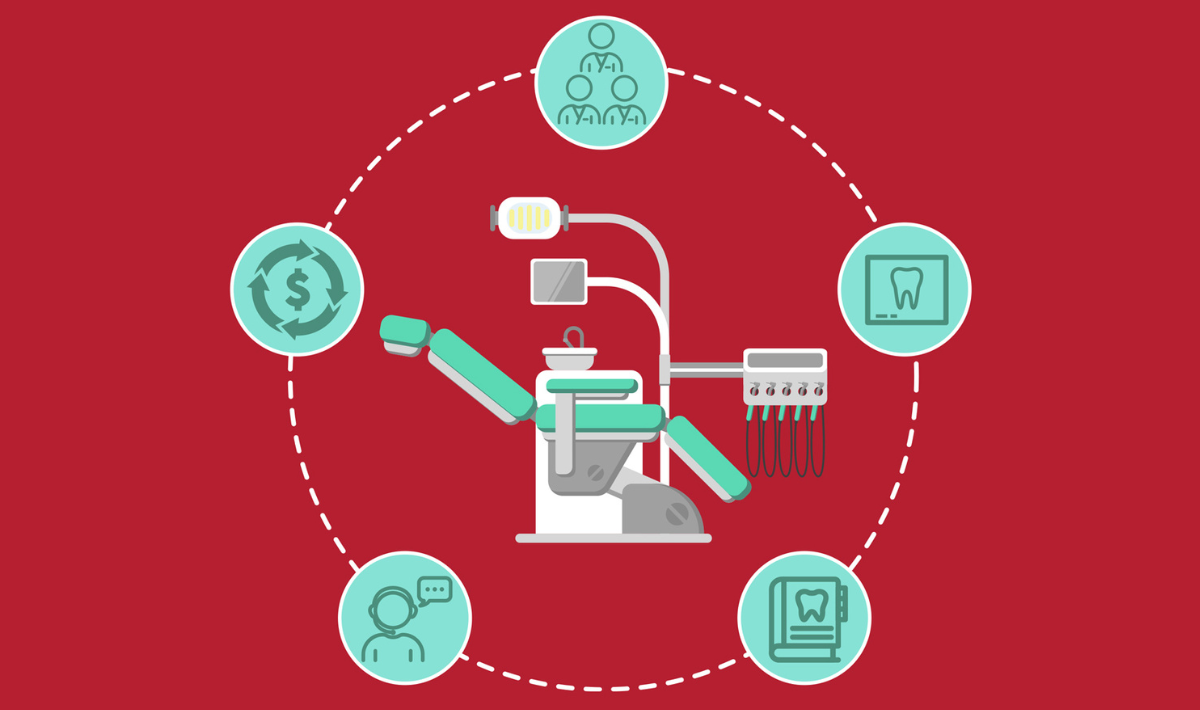A strategic approach for your growing DSO – weighing the depth of support to offer your practices.
By Josey Sewell, RDH, DEO
As you grow your dental group/DSO, one of the key questions that will arise is: What value should you provide the practices you acquire/build/partner with? Will you provide a full-service takeover of their operational tasks, or equip them with best practices, systems, and guidance to handle these aspects themselves, or somewhere in between?
Your approach can significantly impact the efficiency and profitability of your dental company. You’ll need a system to figure out how you’ll support your practices, or you might end up doing everything for them, which is not sustainable. You need to define your “menu of services.” This menu represents the array of support you provide to practices. The real challenge is striking the right balance in what support you offer.
The dilemma of “support”
There are DSOs with support teams that take on almost everything, from HR to marketing, for the practices they serve. They believe this all-encompassing approach adds value and justifies the fees they charge. However, this approach is often too extreme, leading to overly bloated support teams who attempt to do everything for multiple practices. They risk eroding profitability.
Another model DSOs employ is where support teams act more as coaches and mentors, guiding practices while allowing them to maintain a degree of autonomy. For example, consider HR support: instead of handling all of the recruitment, hiring, onboarding, and training, a staff member in an HR support role (or even a whole team) could be responsible for building systems, implementing technology, and creating workflows. An HR support team might handle initial recruiting tasks and phone interviews, but ultimately, they provide qualified candidates for each practice to evaluate. This approach empowers practices to make informed decisions while benefiting from your expertise.
Categories of support
Here’s a breakdown of the categories that can make up your menu of services with examples of what support could mean for each.
- Operations: This encompasses setting up efficient systems and processes to streamline the daily operations of dental practices. It may involve optimizing appointment scheduling, inventory management, and patient flow.
- Human Resources: Support in this category involves assisting practices with talent acquisition, staff training, and HR compliance. Your role could be to help practices build strong, cohesive teams.
- Marketing: Marketing support can range from developing marketing strategies to implementing digital marketing campaigns. This category focuses on enhancing the visibility of dental practices in their local markets.
- Revenue Cycle Management (RCM): Support can encompass billing, coding, claims processing, and financial management within dental practices. This could simply be providing practices with efficient RCM systems, offering staff training, and financial guidance to foster independence while ensuring the DSO’s financial interests remain secure.
- Clinical Oversight: Clinical quality is non-negotiable in dental practices. DSOs can contribute by setting quality standards, offering training, and facilitating peer review processes. Encouraging your practices to be active participants in maintaining clinical excellence ultimately reduces your oversight.
A system to define your menu of services
Using these different categories that a support team might offer, you determine at what depth in each of these areas you want to/are able to provide support to each of your practices. As part of defining the menu of services you want to offer, you may want to evaluate the current needs and preferences of the practices you serve, as well as understand their pain points and where they require support the most.
You have to have a system to figure out how you’re going to support, otherwise, you’ll just be doing everything. Take each category one by one and break down what each entails to determine what support you’ll offer for each. With this structured step-by-step approach, you can ensure that you have the necessary team and resources to provide valuable support without becoming overwhelmed.
By defining categories of support, determining the depth of involvement for each, and implementing a clear strategy, you can ensure that your DSO adds value without overwhelming the dental practices you work with. A balanced approach ensures your growth aligns with the success and thriving of the dental leaders and entrepreneurs you serve.





